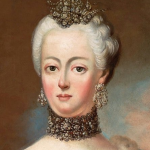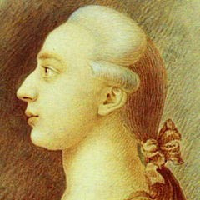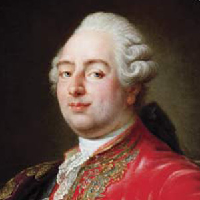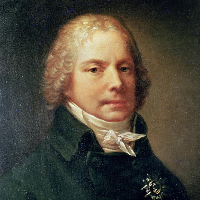Frederick William II of Prussia tipo de personalidade mbti
Personalidade
"¿Qué tipo de personalidad es Frederick William II of Prussia? Frederick William II of Prussia es un tipo de personalidad ESFJ en mbti, 4w3 - sx/so - 486 en enneagram, SLUAN en Big 5, en Socionics."
Fe - Frederick William II was a kind person in social situations. A strong focus on social relationships and maintaining harmony within the community is strongly reflected in the way he governed his kingdom. His religious edict of 1788 guaranteed religious freedom to his subjects. On the other hand, he responded to the revolutionary struggles in France by introducing stricter censorship and repression. Another aspect of Fe was his love of art and culture. He was a great patron of the arts, especially music. He himself played the cello and had a close relationship with famous composers such as Mozart, Haydn, Boccherini, and Beethoven. This indicates an appreciation for the emotional power of art and how it contributes to the social and cultural well-being of a society. Furthermore, his image is dominated by the mistresses and favorites that prevailed under him. We can also interpret this as Fe: the search for emotional confirmation, social approval and connection with others. At the time of Frederick William II, mistresses were accepted at court, as official marriages served political purposes. He cherished the luxurious aspects of court life. His reign saw many lavish parties, masquerade balls, and other ceremonial events, to gain affirmation, both social approval and status enhancement. Si - He had a pragmatic approach to government, and his policies showed a certain preference for maintaining traditional Prussian values and norms. He introduced the Allgemeines Landrecht (The General State Laws for the Prussian States) in 1794, a code of laws that brought legal stability and reflected a certain continuity with the laws of Frederick the Great. Frederick William II's emphasis on maintaining traditional structures can be seen as an expression of Si. This also included his military policies, where he drew on the established military traditions and principles of his predecessor, while at the same time attempting to withstand the external threats of the French Revolution. Ne - Although Ne is less dominant, it can still be seen in the way he responded to the broader geopolitical situation of his time. His decision to end the German Dualism between Prussia and Austria and to forge closer ties with Austria in response to the French Revolution indicates a degree of strategic and forward-looking thinking. Ne tends to make connections between ideas and trends, and see patterns that help identify future opportunities or threats. In this case, his diplomatic shifts reflected an adjustment to new geopolitical realities and the need to anticipate the consequences of the French Revolution. In addition, his artistic and cultural contributions can also be seen as an attempt to influence the future of his kingdom through the creation of cultural monuments, such as the Brandenburg Gate in Berlin and the Marmorpalais in Potsdam. These projects reflect a desire to create a lasting cultural legacy, typical of an ESFJ who values leaving a positive social legacy. Ti - He is often regarded as lazy. He often neglected his political responsibilities, tending to avoid them and showing little initiative in tackling the major challenges of his time, because of a lack of in-depth analysis and organized decision-making in complex situations. He did not have the necessary analytical acumen. He tended to have difficulty with deep, abstract logic or independent analytical thinking. While his predecessor, Frederick the Great had an intellectual approach to government and philosophy, Frederick William II was more pragmatic and focused on maintaining the status quo. His policies were often characterized by a lack of enlightened absolutism and reforms that would modernize the monarchy. This suggests that he was not fully able to understand or integrate the revolutionary and intellectual changes taking place in Europe in a way that would strengthen the monarchy. Another example is his mysticism. He never escaped the long shadow of his predecessor. Even during his lifetime, people often called him "Der dicke Lüderjahn" (the fat ne’ever-do-well).
Biografia
Frederick William II (German: Friedrich Wilhelm II.; 25 September 1744 – 16 November 1797) was King of Prussia from 1786 until his death. He was in personal union the Prince-elector of Brandenburg and (via the Orange-Nassau inheritance of his grandfather) sovereign prince of the Canton of Neuchâtel. Pleasure-loving and indolent, he is seen as the antithesis to his predecessor, Frederick II. Under his reign, Prussia was weakened internally and externally, and he failed to deal adequately with the challenges to the existing order posed by the French Revolution. His religious policies were directed against the Enlightenment and aimed at restoring a traditional Protestantism. However, he was a patron of the arts and responsible for the construction of some notable buildings, among them the Brandenburg Gate in Berlin.
Personalidades relacionadas

Marie Antoinette

Catherine the Great

Frederick the Great

Giacomo Casanova

Gilbert du Motier, Marquis de Lafayette

Louis XVI of France

Charles-Maurice de Talleyrand-Périgord

Alexander Suvorov



